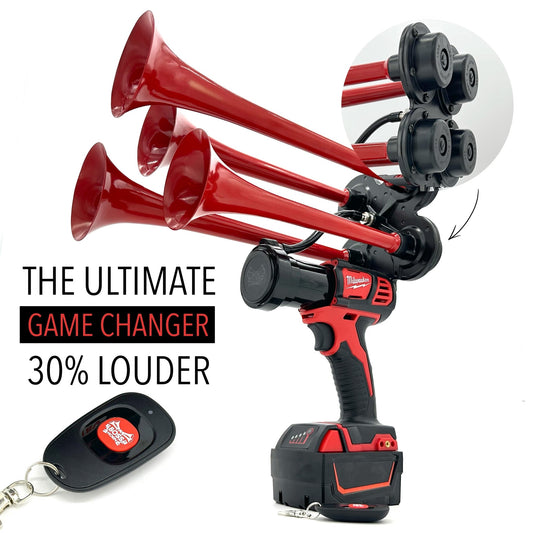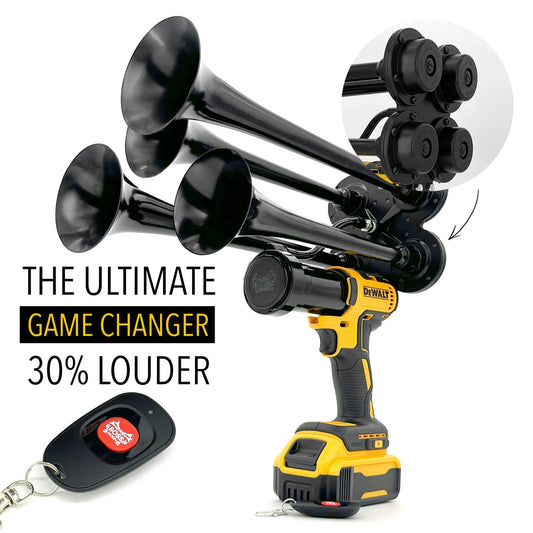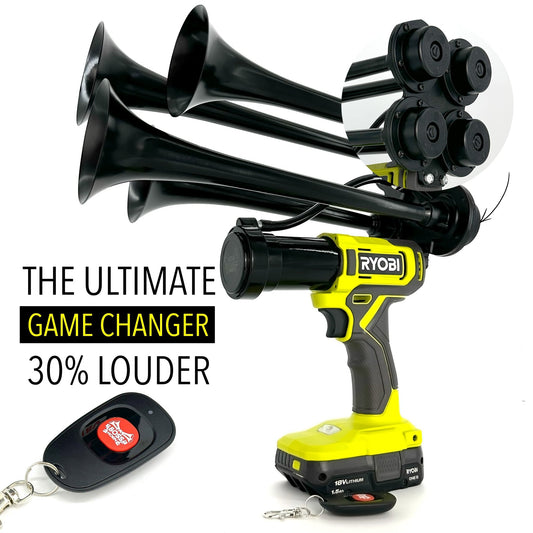Did you know that the first car horn was actually a bulb horn that had to be manually squeezed by the driver to make a loud noise? Over the years, car horns have evolved to become essential safety features on vehicles, especially in emergency situations. It is crucial for drivers to have a properly functioning horn to signal to other drivers on the road and to prevent accidents.
In modern cars, the horn is typically controlled by a button on the steering wheel, making it easily accessible to the driver. The horn is powered by the car's electrical system, which can sometimes malfunction due to various reasons such as a blown fuse, a faulty horn relay, or a problem with the horn itself. When the horn stops working, it can be frustrating and potentially dangerous for the driver, as they are unable to alert other drivers of their presence or signal in an emergency.
If you find that your horn is not working, there are a few steps you can take to troubleshoot the issue. First, check the fuse associated with the horn in the car's fuse box to see if it has blown. If the fuse is intact, you may need to inspect the horn relay to ensure that it is functioning properly. In some cases, the horn itself may be faulty and need to be replaced. By addressing the problem promptly and getting the horn repaired or replaced, you can ensure that you have a reliable means of signaling to other drivers on the road.
What could be causing your car horn to suddenly fail to work?
When a car horn stops working, it could be due to a variety of issues such as a blown fuse, a faulty horn relay, a broken horn switch, or a damaged horn itself. These components are essential for the horn to function properly and alert other drivers on the road. In the following sections, we will explore each of these potential causes in more detail and provide tips on how to troubleshoot and fix the problem. So, if you're wondering why your car horn has stopped working, keep reading to find out more.
**Common Causes of a Malfunctioning Car Horn**
- Damaged Wiring: One of the most common reasons for a car horn to stop working is due to damaged wiring. This can occur from wear and tear over time or from rodents chewing through the wires.
- Faulty Horn Relay: The horn relay is responsible for sending power to the horn when the button is pressed. If this relay is faulty, the horn will not receive power and will not sound.
- Blown Fuse: A blown fuse can also cause the car horn to stop working. Fuses are designed to protect the electrical system in the event of a power surge or short circuit. If the fuse for the horn is blown, the horn will not work.
- Corroded Contacts: Over time, the contacts in the horn button can become corroded, preventing the electrical circuit from being completed when the button is pressed. This can result in the horn not working.
**How to Diagnose and Fix a Non-Functioning Car Horn**
1. Check the Fuse: Start by checking the fuse box to see if the fuse for the horn has blown. If it has, replace it with a new fuse of the same amperage.
2. Test the Horn Relay: Use a multimeter to test the horn relay to see if it is functioning properly. If it is not, replace the relay with a new one.
3. Inspect the Wiring: Inspect the wiring for any visible signs of damage or corrosion. If any issues are found, repair or replace the damaged wiring.
4. Clean the Contacts: Remove the horn button and clean the contacts to remove any corrosion that may be preventing the circuit from being completed.
**Statistics on Car Horn Issues**
- According to a study conducted by AAA, car horn malfunctions account for approximately 5% of all roadside assistance calls.
- The average cost to repair a malfunctioning car horn is around $150-$200, depending on the cause of the issue.
- Approximately 30% of car horn malfunctions are due to damaged wiring, making it the most common cause of horn issues.
https://youtube.com/watch?v=gGqUo5LbAxM
Why is my horn not making any noise?
If your horn is not making any noise, there could be several reasons for this issue. First, check the fuse associated with the horn to see if it has blown. If the fuse is in good condition, the issue may be with the horn relay or the wiring connecting the horn to the vehicle's electrical system. Lastly, the horn itself may be faulty and require replacement.
Key information:
1. Check the fuse associated with the horn.
2. Inspect the horn relay and wiring for any issues.
3. Consider replacing the horn if necessary.
What are common signs of a malfunctioning horn?
A malfunctioning horn may exhibit several signs that indicate there is an issue with its operation. One common sign is the horn not producing any sound when the horn button is pressed. Additionally, if the horn sounds weak or muffled, it may indicate a problem with the horn itself or its electrical connections. Another sign of a malfunctioning horn is if it only works intermittently or inconsistently.
Key information:
1. Horn not producing any sound when button is pressed.
2. Weak or muffled horn sound.
3. Intermittent or inconsistent horn operation.
How can I troubleshoot my horn-related issues?
When troubleshooting horn-related issues, start by checking the fuse associated with the horn to ensure it is not blown. Next, inspect the horn relay and wiring connections for any signs of damage or corrosion. If these components appear to be in good condition, test the horn itself by directly applying power to it to see if it produces any sound. If the horn still does not work, it may need to be replaced.
Key information:
1. Check the horn fuse for any signs of damage.
2. Inspect the horn relay and wiring connections for issues.
3. Test the horn by applying power directly to it.
What are the benefits of having a functioning horn in my vehicle?
Having a functioning horn in your vehicle is essential for safety and communication purposes. A working horn allows you to alert other drivers of your presence in hazardous situations, such as when passing or in emergencies. Additionally, a functioning horn can help prevent accidents by signaling your intentions to other motorists and pedestrians. In emergency situations, a horn can also be used to attract attention and seek assistance.
Key information:
1. Alerts other drivers of your presence in hazardous situations.
2. Signals your intentions to other motorists and pedestrians.
3. Can be used to attract attention and seek assistance in emergencies.
How can I maintain my vehicle's horn to ensure it remains in good working condition?
To maintain your vehicle's horn and ensure it remains in good working condition, periodically inspect the horn and its connections for any signs of damage or corrosion. Clean the horn contacts and wiring connections to ensure a solid electrical connection. Additionally, test the horn regularly by pressing the horn button to confirm it is producing sound. If you notice any issues with the horn, address them promptly to prevent further damage or malfunction.
Key information:
1. Inspect the horn and connections for damage or corrosion.
2. Clean horn contacts and wiring connections for a solid electrical connection.
3. Test the horn regularly to confirm it is working properly.
Conclusion
- If your car horn stopped working, the issue might be due to a blown fuse, a malfunctioning horn switch, or a problem with the horn itself.
- Check the fuse box first to see if the fuse needs to be replaced.
- Test the horn switch by pressing it to see if you can hear a clicking sound.
- If the horn still doesn't work, it might need to be replaced.
- It's recommended to have a professional mechanic diagnose and fix the issue to ensure proper functionality and safety on the road.














